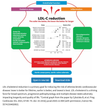
Podcast: Residual Cardiovascular Risk, LDL, and the Statin "Conspiracy"
Recent research shows that we need to earlier and more aggressively reduce LDL-C levels in adults, that residual risk could be reduced much more without material side effects.

Recent research shows that we need to earlier and more aggressively reduce LDL-C levels in adults, that residual risk could be reduced much more without material side effects.

Recent research provides important insights related to lifelong exercisers and the preservation of fitness, especially VO2 max, through life.
![[Video] The 92-Year-Old, Four-Time World Champion Rower](/content/images/size/w100/2023/11/2023-11-30_08-21-21.png)
A video-augmented version of our recent podcast discussion with the author of a paper about a 92-year-old, four-time world champion rower.

The "physical activity paradox": while physical activity is generally beneficial for health and well-being when it is part of one's job it often does not provide the same health benefits—and can even be outright bad in some cases.

Paul talks to the author of a paper about a 92-year-old, four-time world champion rower. We get insights about the many benefits of preserving fitness through life, as well as about the importance of clear objectives and goals.

We surveyed our members, and we got lots of great questions, and in this podcast episode we answered as many of them as we could.

We go into detail about the hows and whys of training to improve aerobic fitness. We talk about what gear you need, which programs work, what markers to track, and how to track them.

Low-intensity training drives adaptations that improve health. It's that simple. But walking across the room builds health. Virtually anything that doesn't involve sitting still is a kind of exercise. Why the emphasis on low-intensity training? What, to be blunt, is the scientific justification?